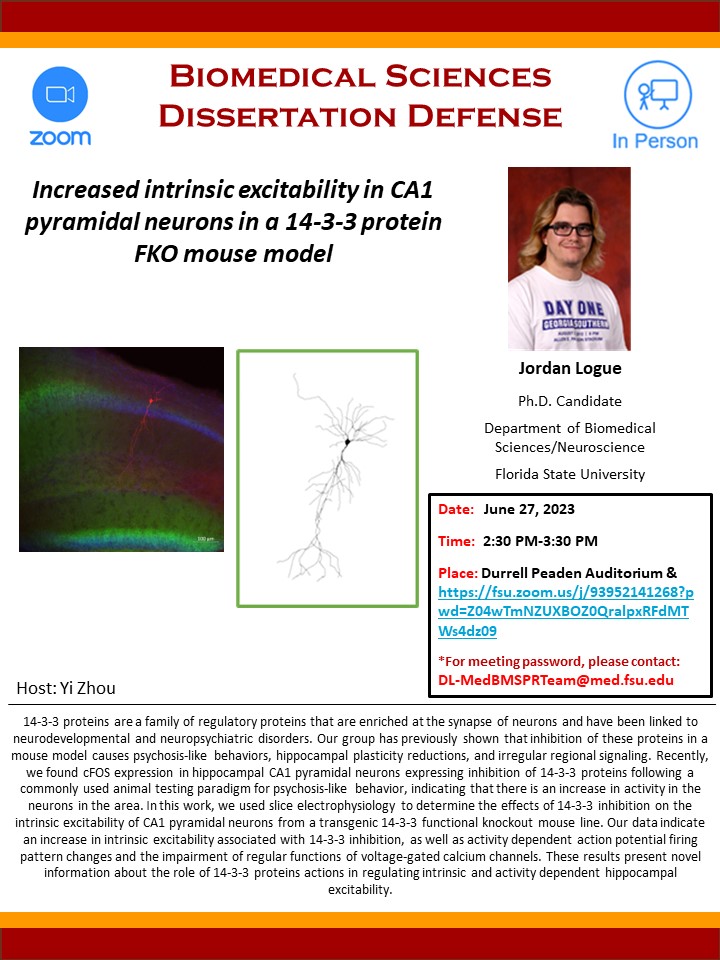Dissertation Defense: Increased intrinsic excitability in CA1 pyramidal neurons in a 14-3-3 protein FKO mouse model

14-3-3 proteins are a family of regulatory proteins that are enriched at the synapse of neurons and have been linked to neurodevelopmental and neuropsychiatric disorders. Our group has previously shown that inhibition of these proteins in a mouse model causes psychosis-like behaviors, hippocampal plasticity reductions, and irregular regional signaling. Recently, we found cFOS expression in hippocampal CA1 pyramidal neurons expressing inhibition of 14-3-3 proteins following a commonly used animal testing paradigm for psychosis-like behavior, indicating that there is an increase in activity in the neurons in the area. In this work, we used slice electrophysiology to determine the effects of 14-3-3 inhibition on the intrinsic excitability of CA1 pyramidal neurons from a transgenic 14-3-3 functional knockout mouse line. Our data indicate an increase in intrinsic excitability associated with 14-3-3 inhibition, as well as activity dependent action potential firing pattern changes and the impairment of regular functions of voltage-gated calcium channels. These results present novel information about the role of 14-3-3 proteins actions in regulating intrinsic and activity dependent hippocampal excitability.
Durrell Peaden Auditorium & Zoom

